Communication problems between men and women
What Can We Learn? — Rochester Rising
While most of us have observed communication differences between men and women, these discrepancies are also well documented by psychological and scientific research. This article is not meant to separate genders into strict communication buckets. And it’s certainly not meant to encourage readers to change their own behavior. Instead, this piece is meant to open up the dialogue about different communication styles to help us better recognize patterns within ourselves and to enhance our interactions with others in both our personal and professional lives.
Improved communication, or an elevated understanding of divergent communication methods, can help to manage confrontation, aid in conflict resolution, relieve stress and anxiety, build stronger relationships, and meet our needs as humans for social interactions. Strong communication skills can facilitate goal achievement and improve job performance, especially in customer service and management positions.
Research shows that men and women are more likely to exhibit different styles of verbal communication. Men are more prone to adopt what is called “report talk,” while women gravitate more toward “rapport talk.”
“Report” style of communication is driven by the exchange of factual information to solve a given problem. This type of communication is direct and typically does not include any personal anecdotes or stories, with limited emotional connotation. This type of communication is aimed at building relationships based on solving that task at hand. “Report” communication users typically tend to dominate the conversation and speak for longer periods of time than other types of communicators.
“Rapport” communication, on the other hand, is aimed at building relationships and problem solving with the aid of those relationships. This style of communication includes more listening than “report” communication and involves the inclusion of more personal feelings and past experiences to solve tasks.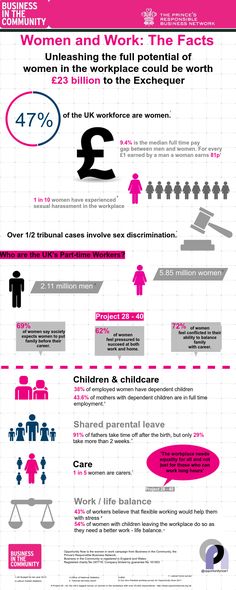 “Rapport” communicators tend to problem solve as they are speaking and are more concerned with everyone equally contributing to the conversation.
“Rapport” communicators tend to problem solve as they are speaking and are more concerned with everyone equally contributing to the conversation.
When speaking, women typically utilize a wider range of pitch and tonal variations compared to men, incorporating five tones into their voice versus the three tones expressed by men. This increased variation may underlie the stereotype that women tend to be more emotional speakers than men.
Non-verbal signals are also important contributors to communication. Similar to divergent verbal communication styles, men and women tend to gravitate toward different methods in this type of communication.
In general, women tend to condense their bodies into as compact a space as possible. This involves tucking in elbows, crossing legs, and keeping any materials in stacked piles. Women also tend to display more animated facial expressions, smile more, and make more eye contact than men. Men, on the other hand, tend to expand more than women into physical space and normally resume a more relaxed body posture.
Again, these data are generalized statements and are not meant to convey that all men fit into one type of communication category and all women into another category. This is also not meant to position one style of communication as superior to the other. This discussion, instead, is just meant to describe two very general forms of communication so we can recognize them with the goal to improve our own communication and relationship building skills.
However, we can all set ourselves up to be better communicators in the workplace if we practice something called executive presence. You don’t have to be a CEO to implement this style of communication. Instead, executive presence just involves exhibiting confidence, communicating clearly and efficiently, and reading an audience or situation effectively. Executive presence includes eliminating behavior like questioning ourselves as we speak, laughing nervously while talking, overly apologizing, storytelling in excess, and being extremely deferential. Instead, executive presence involves listening, talking efficiently to forward the conversation, speaking firmly, and standing/sitting tall.
Instead, executive presence involves listening, talking efficiently to forward the conversation, speaking firmly, and standing/sitting tall.
Highly important to executive presence is a skill set called emotional intelligence (or EI). EI is a concept pioneered in 1990 by psychologists John Mayer and Peter Salovey. This behavior involves high levels of self-awareness, including the ability to perceive, understand, and interpret emotional information.
EI is useful for relationship building; highly effective leaders also typically have elevated levels of EI.
Overall, neither gender appears to have an advantage over the other in the ability to practice or develop EI. Some studies suggest that women might be slightly better than men at displaying emotional empathy, one aspect of EI.
EI has even been observed in chimps. While in this case, female chimps tended to exhibit higher levels of empathy than males when interacting with other chimps. However, alpha males, the troupe leaders, generally displayed higher levels of empathy than even the females.
Want to learn more about differences in gender communication? Take a dive into the references below and join us tonight for a roundtable discussion at Little Thistle Brewing around this topic.
References:
1. Capita3 materials and verbal communication. 2018.
2. Kinsey Goman, Carol. “Is Your Communication Style Dictated by Your Gender?” Forbes. N.p., 31 May 2016. Web. 13 Sept. 2018.
3. Nelson, Audrey. “Gender Communication: It’s Complicated.” Psychology Today. N.p., 24 June 2016. Web. 13 Sept. 2018.
4. Graham, Debra. “Gender Styles in Communication.” University of Kentucky. 13 Sept. 2018.
5. Mohindra, Vinita and Samina Azhar. (2012). Gender Communication: A Comparative Analysis of Communicational Appraoches of Men and Women at Workplaces. Journal of Humanities and Social Sciences. 2(1), 18-27.
6. Goleman, Dan. “Are Women More Emotionally Intelligent Than Men?” Psychology Today. N.p., 29 April 2011. Web. 12 Sept. 2018.
N.p., 29 April 2011. Web. 12 Sept. 2018.
7. Barisco, Justin. “You Need to Learn How to Make Emotions Work for You, Instead of Against You. Here’s the Proof.” Inc. Web. 13 Sept. 2018.
8. Meshkat, Maryam and Reza Nejati. (2017). Does Emotional Intelligence Depend on Gender? A Study on Undergraduate English Majors of Three Iranian Universities. SAGE Open. July-September. 1-8.
9. Lipman, Victor. “New Study Shows Women Consistently Outperform Men in Emotional Intelligence.” Forbes. N.p., 11 May 2016. Web. 13 Sept. 2018.
10. “Gender Issues: Communication Differences in Interpersonal Relationships.” The Ohio State University. Web. 13 Sept. 2018.
Gendered Communication | Differences In Communication Styles
Skip to content- View Larger Image
Gendered communication refers to a specialized area that focuses on the differences in how men and women communicate. It’s an interesting field made even more complicated by the changing definitions of gender in the 21st century.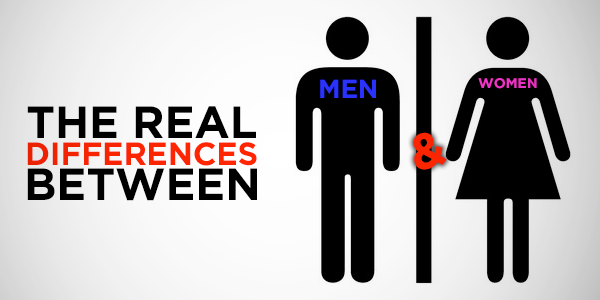
Most research into gendered communication focuses on the roles of people of different genders in areas such as media, politics, sports, business and academia. It might include examinations of comments on the internet by people of different genders, or how genders have been represented throughout history in artwork, fiction and even public policy
Students in an online Bachelor of Arts in Public Relations and Advertising develop expertise in gendered communication because their professional careers revolve around communication with the public. Creating effective messages requires understanding differences in how genders communicate.
It’s important to realize that much of what follows deals strictly with men and women. We live in a transitional era where keeping up with the changing attitudes toward sex and gender are difficult to track.
Also, research into gendered communication started only about 50 years ago, focusing initially on differences in language styles.
Men and women also differ when it comes to what they say. Men tend to a “report” style, meaning they use speech that contains facts, data and aims to solve problems. They tend to leave out personal information or anecdotes. They also tend to try to dominate a conversation.
Women use more of a “rapport” style that aims toward relationship-building. They tend to share more personal information and emphasize inclusion of all speakers.
Nonverbal Cues in Different Genders
Research into gendered communication has expanded into the area of nonverbal communication. It includes the following insights.
Facial expressions. Men use fewer of the thousands of available facial expressions than women do. That includes smiling less.
Paralanguage. This includes areas such as tone, pitch and speaking speed. Women use paralanguage to express meaning far more than men.
Physical space. Men prefer speaking face-to-face and will stand closer to women than they will to men. Women are just as comfortable speaking side-by-side (such as in a car) and are more comfortable being close to other women.
Women are just as comfortable speaking side-by-side (such as in a car) and are more comfortable being close to other women.
Touch. Women use touch to reassure or to build a connection, such as touching an arm to support someone who is speaking. Men use touch more as a show of dominance, including pats, back slaps and shoulder touches, according to learning tech company Valamis.
Eye contact. Women use eye contact as a way to connect with a speaker, showing they are engaged and listening. Men may avoid it altogether or listen with eyes closed as the other person speaks.
It’s also important to note that paying attention is something men do not do well as a gender. Research also has shown that men have less success than women at reading nonverbal cues and sending nonverbal cues, according to Psychology Today.
While research backs these differences, it’s important for public relations and advertising professionals to avoid using only stereotypes when it comes to men and women. Many men may use communication styles that are mostly associated with women, and vice versa. When it comes to gendered communication, the key is understanding both the general rules and the nuances of communication.
Many men may use communication styles that are mostly associated with women, and vice versa. When it comes to gendered communication, the key is understanding both the general rules and the nuances of communication.
Problems in communication between a man and a woman If this is your case, you are not alone. Communication problems are very common among all types of relationships. There are many reasons why people cannot communicate clearly or directly, which will be discussed below.
What we know for sure is that communication problems make you exhausted and you lose hope in a relationship. For this reason, you need to learn how to deal with these problems. Keep in mind that communication is a gift and should be treated as such. Once we begin to understand its importance in our relationships, we can begin to use it in the right way to have more loving and satisfying relationships.
I can't stress enough how important it is for people to be educated about what affects their lives and especially their relationships.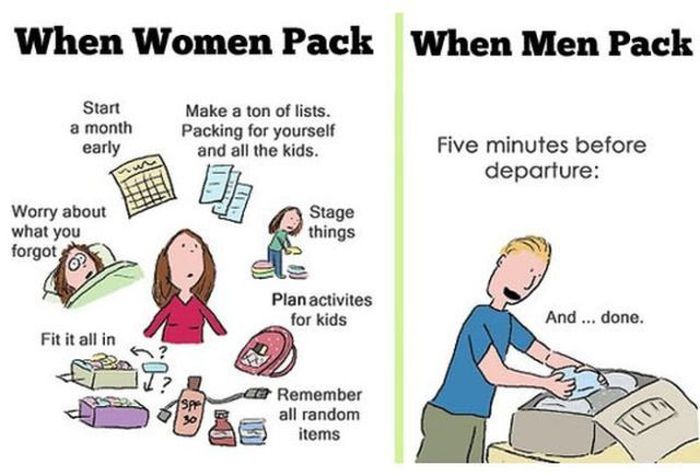
Article
- What are the main problems of communication
- Tips for better communication
- 1) Regularly communicate
- 2) Carefully listen to
- 3) Be persistent with anger
- So you've given me good advice - but how can I make it work to avoid communication problems?
- 1) Do you want to avoid communication problems? Regularly communicate
- 2) Listen carefully
- 3) Be persistent
- 4) To save problems in communication - Avoid disrespect
- 5) Do not communicate with anger
What are the main problems of communication
problems in the community change with a person's age, we all begin to learn how to communicate at a young age. Our parents became our first role models at an early age. It's likely that you have the same communication problems as them, so blame them for your problems (it's a joke). However, all is not lost, we can learn to communicate better and get rid of those bad habits called communication problems that we learned from mom and dad.
There are basic communication problems that tend to affect relationships. Below is a list of some of these problems:
- Lack of self-confidence. A person cannot be firm in his point of view and does not have the ability to clearly express what he feels or needs;
- Inability to listen carefully. A person hears the words coming from your mouth, but does not listen to understand;
- Use of disrespectful language. The only known form of communication is disrespectful and offensive language, which also includes yelling and loud bangs;
- Contempt or silence of another's voice. A person wants to be listened to, but refuses to listen to others, he simply does not consider the opinion of his partner.
Tips for Better Communication
1) Communicate Regularly
Don't wait for conflict to arise to determine how you will react. Make socializing with your partner a regular part of your day. You don't have to say much, start by asking simple questions and encourage your partner to answer in a way that you understand. Take turns speaking as you begin to learn to respect each other's point of view and practice your listening skills.
Take turns speaking as you begin to learn to respect each other's point of view and practice your listening skills.
2) Listen carefully
Show your partner that you are paying attention. Make sure the noise in your surroundings is kept to a minimum, turn off your TV, put away your mobile phone, in general, you need to disconnect from everything that distracts you. Pay attention to the details, your partner will give you "key words" to help you understand. Listening carefully is a great way to show love and respect.
3) Be assertive
You must express yourself clearly, concisely and firmly. Your partner must know exactly what you mean. Avoid vague words and remember that if you can't understand yourself, your partner can't either. You must first know exactly what you want and then try to convey it in a clear way.
4) Avoid contempt
How you see your partner is related to how you communicate with him. If you do not consider him valuable or worthy of respect, it is likely that you will treat him disrespectfully when interacting with him. If this is your case, then there may be a problem that affects the relationship, and you may need more than these tips. Look at therapy sessions or relationship coaching.
If this is your case, then there may be a problem that affects the relationship, and you may need more than these tips. Look at therapy sessions or relationship coaching.
If something of value has attracted you to your partner, and although feelings change, the person's values do not change. When you communicate with your partner, remember that you are both different and have different values, but each of you is valuable in your own way.
5) Don't communicate with anger
We all know that when we get angry, we say things we don't mean. Often the words we say when we are angry cannot be returned and have already done damage that is difficult to repair. You need to avoid communicating when you are angry, especially if you tend to release your anger through offensive words.
How you evaluate your partner is related to how you communicate with him.
So you've given me good advice - but how can I make it work to avoid communication problems?
Here are a few ways you can start implementing the tips above:
1) Want to avoid communication problems? Communicate regularly
Tell your partner that you are interested in doing something a little different.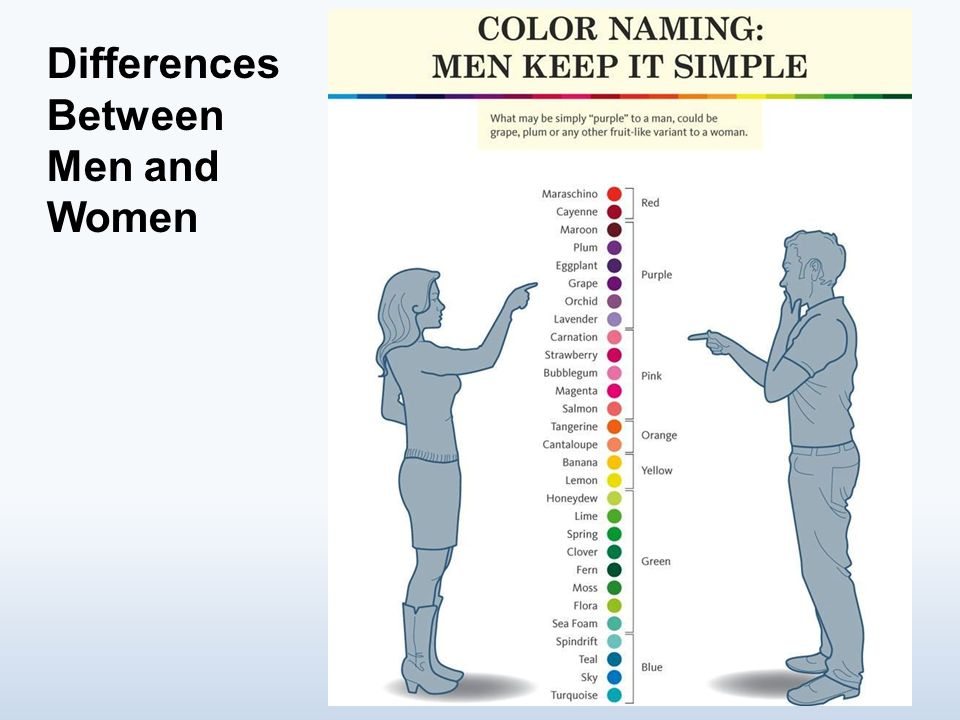 Explain what your goal is (better communication) and how you plan to achieve it together. Arrange a meeting for a cup of coffee at home or in a cafe, and let this be the beginning of regular communication. After that, make sure you both take the time to talk about your day and the events in your life. Talk about how you feel, but don't forget to talk about the things that make you uncomfortable because it will help your partner get to know you better.
Explain what your goal is (better communication) and how you plan to achieve it together. Arrange a meeting for a cup of coffee at home or in a cafe, and let this be the beginning of regular communication. After that, make sure you both take the time to talk about your day and the events in your life. Talk about how you feel, but don't forget to talk about the things that make you uncomfortable because it will help your partner get to know you better.
Don't think that because you've been together for many years, this person knows you completely. In fact, there are many things that you have yet to discover. So go ahead and start sharing these things. Remember that this is part of your intimacy. If necessary, set a timer on your phone to remind you of the time you set aside for your partner. Just don't do it when you're doing other things.
2) Listen carefully
Our generation has been blessed with advances in technology, but this has negatively impacted how we listen to each other. Recently I heard someone say that technology has brought us closer to those who are far away and we are moving away from those who are near. And this is a really sad reality. You don't want this to happen in your relationship. Whenever you are talking to a loved one, you should pay close attention to him. It may seem strange, but it may require you to turn off your phone and other devices that distract your attention.
Recently I heard someone say that technology has brought us closer to those who are far away and we are moving away from those who are near. And this is a really sad reality. You don't want this to happen in your relationship. Whenever you are talking to a loved one, you should pay close attention to him. It may seem strange, but it may require you to turn off your phone and other devices that distract your attention.
For some people, attentive listening comes naturally, but for others, an extra push is needed. Regular communication with your partner will help you determine what type of listener they are and help you determine what kind of listener you are. You must listen carefully to your partner's needs. If you followed the first tip and already have time to listen to your partner, you may now need to create a welcoming and relaxing environment in order to listen better.
3) Be assertive
To be assertive, you must consider your partner's emotions and needs. You must express your point of view while respecting their opinion. However, you don't need to feel guilty about wanting more romance or wanting to spend time alone. There should be no shame or guilt about wanting what your partner doesn't want or need.
You must express your point of view while respecting their opinion. However, you don't need to feel guilty about wanting more romance or wanting to spend time alone. There should be no shame or guilt about wanting what your partner doesn't want or need.
If you've followed the first two tips, you now have a base on which to build sincere and direct conversations. Tell your partner exactly what you want. I had to put it in bold so you could understand me. Don't assume that your partner is responsible for all the phrases that pop into your head. Once you are clear about your needs and emotions, be firm, but also be willing to compromise. Remember that you are in a relationship with someone else and not with yourself. Assertiveness does not give you the freedom to be selfish.
Communication for relationships is breathing for life
- Virginia Satir
4) To avoid communication problems - avoid disrespect
No matter what relationship you are in.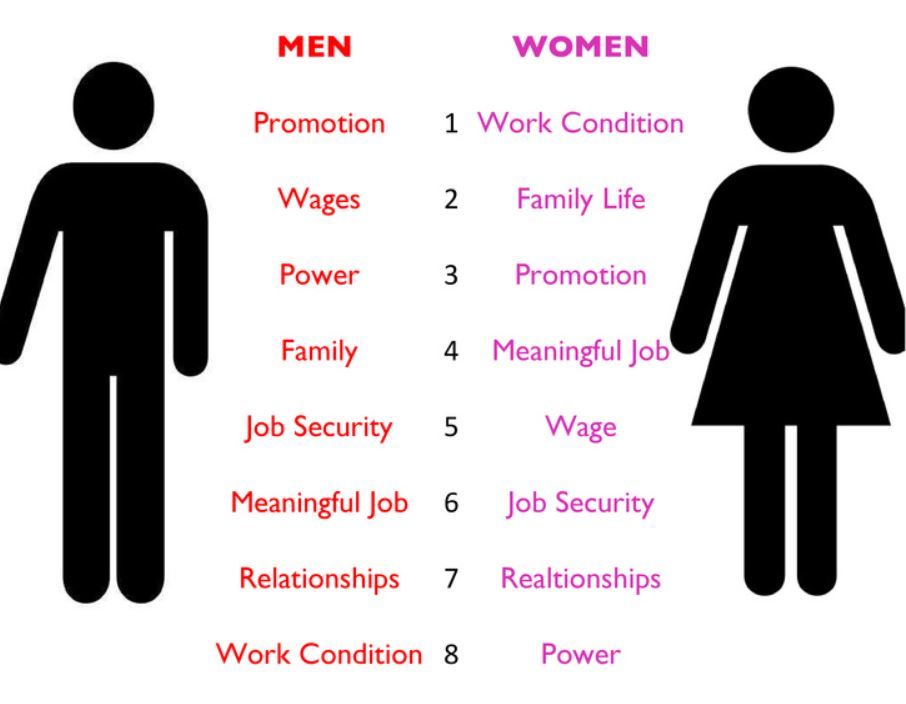 The person you have chosen to share your life with should command respect from you. If you have applied the above tips, it is likely that you are already giving your partner love and respect.
The person you have chosen to share your life with should command respect from you. If you have applied the above tips, it is likely that you are already giving your partner love and respect.
What you need to do often is reflect on how you feel about each other and the value you place on each other's role in the relationship. What your partner has to say is valuable and should be respected, even if you disagree.
5) Don't associate with anger
Anger is a very bad state. What you need to do at this point is to ask your partner for a break. Say that you will have a conversation later, when you see fit. If you or your partner feel the need to time out, don't push it. Respect the fact that your partner has chosen to calm down before speaking. But don't take too long of a break, as your partner may interpret it differently. Your partner should never feel ignored. That is why you should practice regular communication so that when communication becomes impossible, your partner knows what to expect.
6 typical mistakes in communication with a man, due to which parting is inevitable
Why do some couples build harmonious and strong families, while others constantly quarrel and sort things out? Here are the most typical mistakes that women make in dealing with men. They not only interfere with coming to an understanding, but also increase the risk of parting. Read the selection and evaluate whether you are doing everything right or if there is something to fix.
Error 1: let him take a step forward, he is a man
Women mistakenly believe that it is men who must always take the first step. Girls, as well as guys, need to remember that relationships are the work of two people. Photo © Pexels
Such tactics of behavior, as psychologists assure, speaks only of a woman's disinterest in communicating with a man. Girls who wait for a young man to make the first move just want to get results without any effort. And this is a complete shifting of responsibility to another person, in this case, to a man.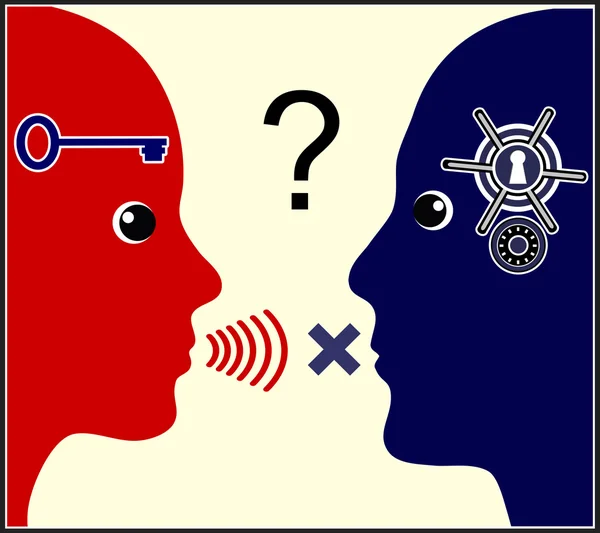
How to fix the error? Just understand that relationships are primarily the work of two people. Yes, don't push too hard if you're afraid. But there is nothing wrong with showing the man you love that you are interested in him. Call first, write SMS or invite on a date.
Error 2: jumping from topic to topic during a conversation
An inconsistent story often unnerves a man, which causes conflicts in couples. Photo © Pexels
Dear ladies, let's remember once again: male and female psyches work differently. Therefore, another common mistake, due to which the second half can turn away from you, is an unstructured conversation. Men love logic when everything goes in the right order. And if you first tell about an evil girlfriend, then about a new manicure, a quarrel with your mother and how you want a dog, all this will confuse and anger your chosen one.
How to fix the error? It's simple: restore the chronology of events in order to consistently share your impressions or experiences with your beloved man. And it will be easier for you to avoid mistakes and your soulmate to understand what the point of the conversation is.
And it will be easier for you to avoid mistakes and your soulmate to understand what the point of the conversation is.
Mistake 3: I'm hinting too thick, but he won't understand
You shouldn't communicate with your man only by hints. Learn to talk about your desires directly. Photo © Pixabay
Another common and one of the main mistakes that a woman can make in a relationship is to talk to a man with constant hints. Unfortunately people can't read minds. How do you think a man should behave if they don’t tell him directly what they want or what needs to be done, and then they also roll up a scandal on this basis?
How to fix the error? Do not be afraid and do not hesitate to talk to your beloved and ask him for something directly. Constant walking "around the bush" only annoys men. As a workaround, you can directly set the time and topic of your next request conversation to see what happens. For example, "on Wednesday at six in the evening we discuss the lack of a shelf for books, which is inconvenient. "
"
Mistake 4: manipulation of silence after a quarrel
The worst mistake of a woman in dealing with a man is manipulation of silence or ignoring her beloved. Photo © Pexels
Maybe at first such erroneous tactics of female behavior will be to the taste of a man, for example, for the first 10 minutes of silence. But then he will definitely start to get angry if you continue to ignore his desire to understand the situation. The manipulation of silence, as psychologists call it, is one of the most painful for the psyche. For especially sensitive people, it is akin to torture.
How to fix the error? For the first time, you can really disperse in silence to different rooms in order to give yourself and your partner a little cool down, to experience emotions. And then, if the man is dear to you and you want to save the relationship, calmly discuss what happened. Don't make the mistake of the first point, don't wait for your loved one to come up first.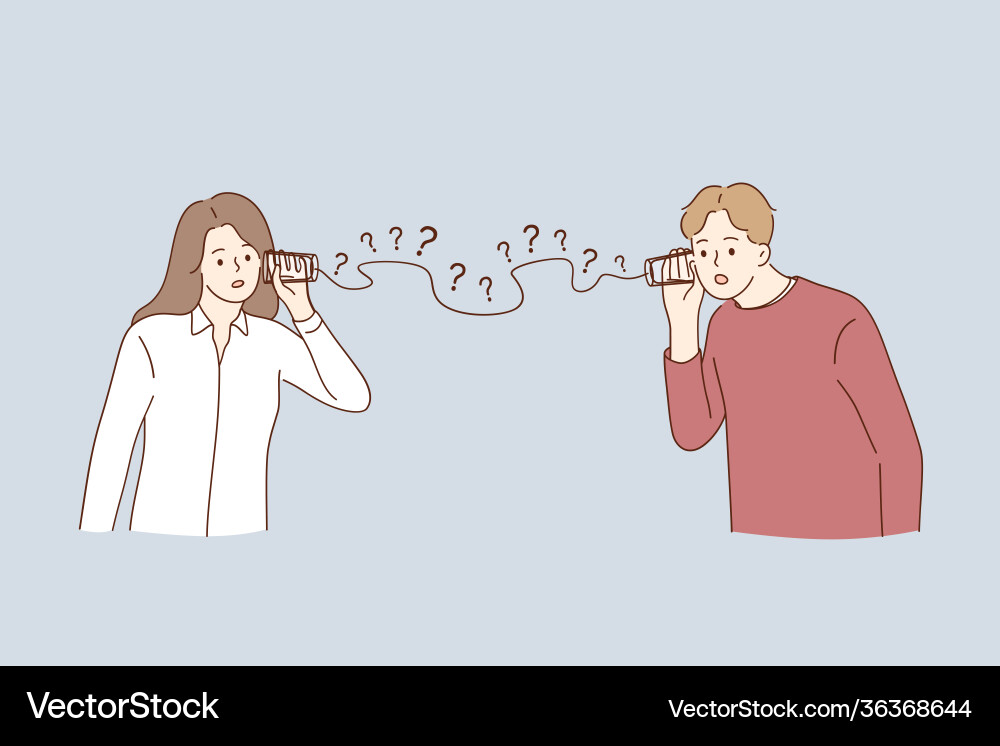
Mistake 5: defiantly saying "everything is fine"
If you don't like something, don't defiantly pretend and answer that everything is fine. Photo © Pixabay
Another type of avoidance and shifting responsibility onto a partner, another major mistake in communicating with a man. Why be surprised? If you demonstratively close yourself from the chosen one, do not go for rapprochement, choosing the wrong tactic "everything is fine." Who likes that his opinion and desire to eliminate the conflict is not appreciated?
How to fix the error? As mentioned earlier, don't be afraid to speak directly to the young man. Strong and harmonious relationships are built on the trust of partners. By avoiding discussing problems with each other, you only push the man towards ending the romantic relationship.
Error 6: first interested in sex, and then his personality
Also one of the most common and, we think, obvious mistakes in communicating with a man.














